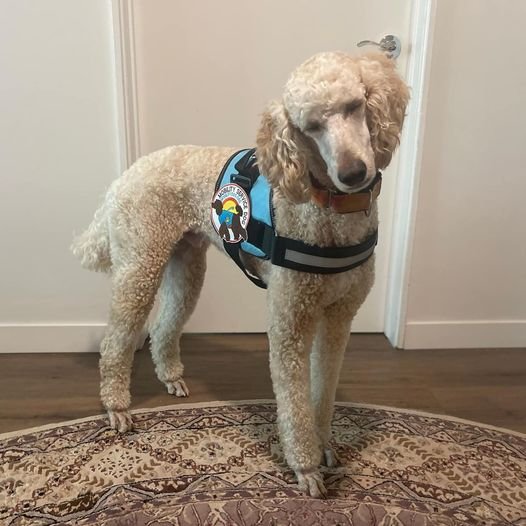Service dogs are specifically trained to assist individuals with disabilities, making their behavior crucial for the handler’s safety and maintaining public access privileges.
Read MoreAdvocating for service dogs is a continuing challenge despite the passage of the ADA Act over 34 years ago (in 1990)! Just about everyone who has had a service dog has encountered some type of resistance. So what qualifies a person to have a Service dog and where can the service dog team go?
Read MoreDespite the increasing visibility of service dog teams, public understanding of how to interact appropriately with a service dog team is still lacking. One of the most important guidelines is that people should focus on the handler and not the dog.
Read MoreDespite the passage of the ADA Act over 30 years ago, ignorance and discrimination is still faced by those challenged with disabilities in day-to-day life. Read about two of my personal experiences and the resulting consequences in today’s blog post.
Read MoreService Dogs as working dogs assisting individuals with disabilities are granted certain legal privileges that allow them to accompany their handlers in various public places. In this post, we will explore five reasons why service dogs can go anywhere.
Read MoreService Dogs should always be considered as “working dogs” trained to do work or perform tasks for a person with a disability. Learn why labeling Service Dogs as “pets” does them a great disservice.
Read MoreService dogs are miracle workers in many ways and the costs of training and upkeep are more than returned through psychological, social and economic benefits.
Read MoreWhen a disability changes, can a Service Dog learn a new task? The simple answer is yes. But there may be situations when using another service dog to perform different tasks may be preferable.
Read MoreDid you know that among combat veterans, a staggering 10-31 percent will be diagnosed with debilitating PTSD? In today's blog post, we take a closer look at how animal-assisted therapy, specifically the use of psychiatric Service Dogs, could beneficially supplement traditional PTSD therapies.
Read More



















